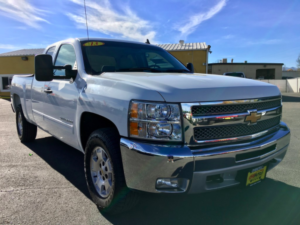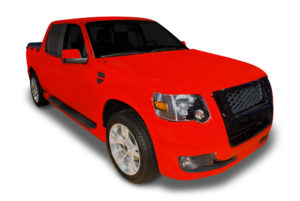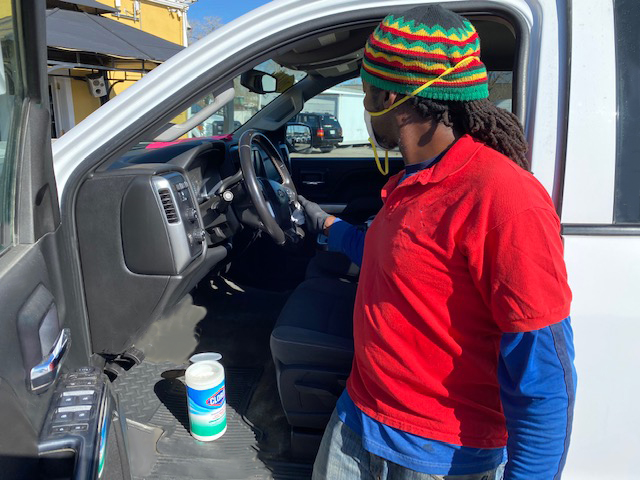Dye Autos Denver Area Truck and Automotive Blog
6 Pitfalls to Avoid When Trading in Your Used Pickup Truck
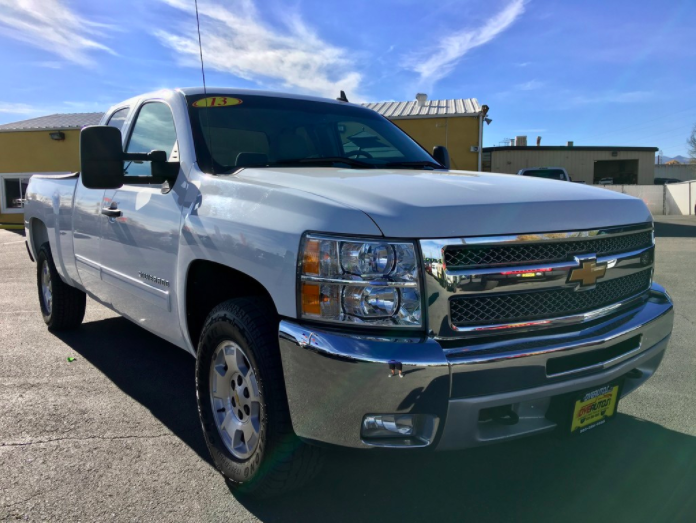 It’s time to purchase a “new” used truck, and you’re thinking about the trade-in value you could get on your current truck. Before you send your vehicle off to its next home, there are some things you need to know before trading in your used pickup truck.
It’s time to purchase a “new” used truck, and you’re thinking about the trade-in value you could get on your current truck. Before you send your vehicle off to its next home, there are some things you need to know before trading in your used pickup truck.
Over the years, our customers have always appreciated the information we provide. We believe that knowing all the facts makes for a better customer experience.
Here are 6 common mistakes to avoid when trading in your used pickup truck:
1. Overestimating or underestimating your vehicle’s value.
Trading in your used pickup truck can be challenging and not being realistic about its value will make things more difficult.
Be honest with yourself about your vehicle’s trade-in condition. The more forthright you are when using online appraisal tools like Edmunds.com or kbb.com, the better off you’ll be when it comes time to trade it in. Very often, people come into the dealership with an overly-optimistic idea of what their car is worth, only to find that their expectations weren’t realistic.
2. Bringing in a dirty truck.
Dealers like to see a clean vehicle. It says that you care about your used truck and its value.
Before trading in your used pickup truck, always make sure that your car looks clean and smells as clean as possible. Doing this often increases the value of your trade in.
3. Over-fixing your truck.
Dealerships tend to agree that your best option is to not concern yourself with making major fixes to your trade in. If it’s something as simple as touching up a little scratch or popping out a small dent, these are the kinds of fixes that are recommended.
Anything larger scale would not be worth your investment because the dealership will be able to repair issues for much less than you would be asked to pay at a shop.
4. Forgetting important documents.
Bring all vehicle paperwork with you. Here’s a handy list…
- Certificate of title (if you don’t have it, the DMV can tell you how to get it replaced). Note: if you have an outstanding loan on the vehicle, this will not apply since the bank has your certificate of title.
- Current registration.
- All your keys and the owner’s manual.
- If you still have an open loan, you’ll need to bring your account number or a payment stub.
- Maintenance records. These help support your claims about whatever prior damage your truck has had and the repairs it has undergone.
5. Not having all your truck’s accessories.
Trading in your used pickup truck means you are trading in everything that goes along with it. Make sure the original owner’s manual and any extra keys are in the vehicle when you arrive at the dealership. Dealers like used trucks that still have all the accessories and may even give you a better deal on your trade when everything is there.
6. Not knowing your vehicle’s history.
Being familiar with your vehicle’s history will help during your trade-in negotiations. Be “upfront” with the dealer, especially on any major problems that you know of, even if those problems were caused by the previous owner.
In Summary…
Avoiding the major pitfalls when trading in your used pickup truck can often save you money. Getting the best price for your trade in allows you more purchase power on the “new” used pickup truck you intend to buy.
We suggest going somewhere to get an honest and trusted opinion on your vehicle. At Dye Autos, we’ve been selling great used trucks in Denver for many years and we’d love the chance to help you. Give us a call at (303) 286-1665 or simply fill out our online form >>here<<. We’ll be in touch!
Read More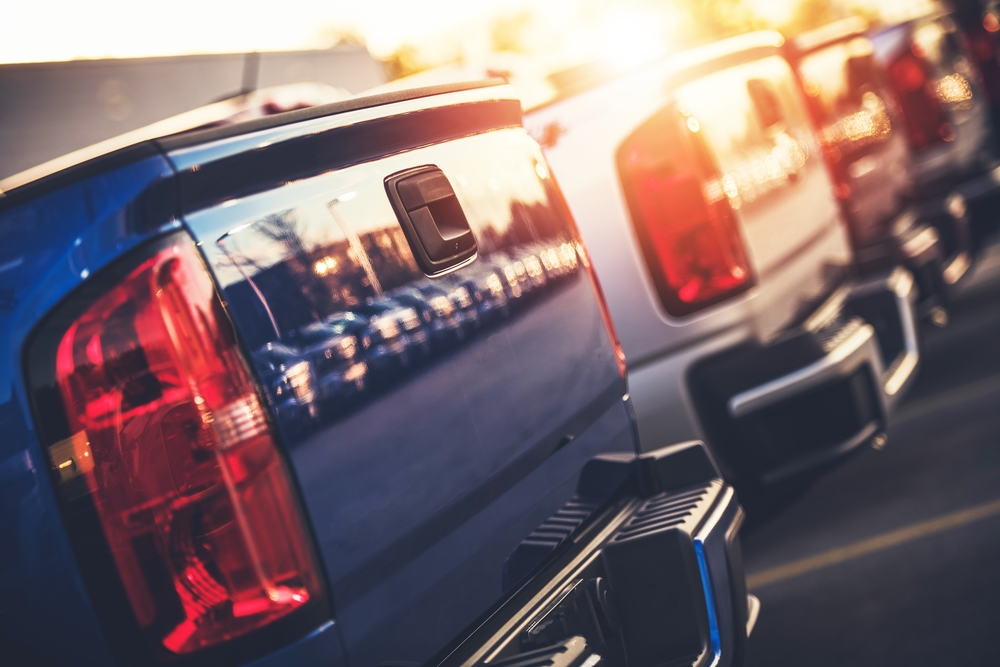
More than half of the vehicles sold in the U.S. are light-duty pickup trucks, SUVs and crossovers. There’s a big demand for used pickup trucks, both gas and diesel.
The used pickup truck market is estimated to be three times bigger than the new-truck market. Those who can’t afford to buy a new pickup, or who like to take advantage of some great deals, are always searching for the best deal on a used pickup truck.
At Dye Autos, we sell a lot of used pickup trucks.
Here are 5 important details to look for and consider when buying a used pickup truck.
1. Work with a dealer to set your budget.
It’s important to understand your budget and know what kind of truck you want. There are many options to choose from it’s crucial to set your expectations.
Start with an expert – a trusted dealer. At Dye Autos, we’ll help you determine what used pickup truck works for your lifestyle and your financial needs. We’ll give you a framework to work within so that shopping won’t get overwhelming.
2. Make a list to identify your wants and needs.
Many people approach buying a used pickup truck based on features they think they must have, rather than from a true evaluation of their needs. Making payments on a truck that’s too large or too small gets old real fast.
Consider these questions to identify your priorities.
- Is fuel mileage important, or are you willing to trade good fuel mileage for a larger engine with more power to tow and haul?
- Do you need a truck for occasional trips to the home improvement store or to the dump? A small truck with decent fuel economy might be the best choice.
- Is a 4WD truck a must for the roads you travel every day, or for snowy conditions in the winter?
- Do you regularly carry more than one passenger? Jump seats in a small second row are not suitable for more than short trips.
- Are you okay with either an automatic or manual transmission? Which accessories and/or safety features are must-haves? Jot down any characteristic that’s important to you and take it along when you shop.
3. Prioritize your lifestyle needs too.
Many people buy trucks for work but many others are just partial to diving pickup trucks. For them it’s a matter of lifestyle.
It’s important to make a list of the features most important to you that fit your lifestyle.
- Will you be hauling or transporting heavy materials?
- Do you drive mostly on highways or dirt and unpaved roads?
- Do you have kids that you’ll be driving back and forth to classes, soccer practice, dance recital, or school plays?
Prioritizing your lifestyle needs will help you decide which features you should be looking for first when shopping for your used pickup truck—be it larger cab space, a second row of seating, a stronger hitch, or a more powerful engine.
4. Get pre-approved.
At Dye Autos, we are the truck financing experts.
We’ve got 70 years of combined truck financing experience and 100 years in automotive retail. We’ve seen every situation and we can help you. How?
- We know what banks require.
- We often get customers approved while they’re here at the dealership.
- We have access to finance anyone.
- We’ll get you pre-approved faster than anyone.
Do you have a particular financing issue or concern? Let us help! Call us at (303) 286-1665 or contact us through our site >>here<< and we’ll put our experience to work for you.
5. Once you buy, stop looking.
Don’t second guess yourself!
You’ve done your homework, shopped around, found a trustworthy dealer, and made a careful decision. Now it’s time to enjoy your truck and not worry about the elusive truck that “got away.”
“If it’s a truck you wanna buy, you’d better call DYE!”
Read More Many car buyers prefer to trade in their current vehicle when getting another one because it’s easy. All you have to do is drive to the dealership, sign a your paperwork, and drive away in a different vehicle. What many buyers don’t know is that there are other benefits of trading in your car.
Many car buyers prefer to trade in their current vehicle when getting another one because it’s easy. All you have to do is drive to the dealership, sign a your paperwork, and drive away in a different vehicle. What many buyers don’t know is that there are other benefits of trading in your car.
One of the biggest benefits of trading in your car is that you can apply the trade-in credit to your down payment, thereby reducing the amount you need to finance. (ie: lowering your monthly payment!)
There can be tax advantages, too. Colorado and most other states require sales tax to be paid only on the difference between the price of your trade-in and the vehicle you’re buying, not the full price of the next car.
But this tax benefit doesn’t apply if you sell your old vehicle yourself!
Important tips when trading in your car
We’ve been selling trucks for a long time in the Denver/Wheat Ridge area. We’ve heard from customers like you who want to know “insider’s tips” on trading in your car. Here are four of our BEST tips!
- Give your trade-in curb appeal.
- Clean the exterior and interior well.
- Remove small dents.
- Fix window glass defects.
- Be honest with yourself about your car’s trade-in condition. The more forthright you are when using online appraisal tools, the better off you’ll be when it comes time to trade it in. Very often, people come into the dealership with an overly-optimistic idea of what their car is worth, only to find that reality is less optimistic.
- Don’t forget to pack all your car’s accessories. Trading in your car means you are trading in everything that goes along with it. Make sure the original owner’s manual and any extra keys are in the vehicle when you arrive at the dealership. Dealers like used cars that still have all the accessories and may even give you a better deal on your trade when everything is there.
- Bring all vehicle paperwork with you. You will need:
- Certificate of title (if you don’t have it, the DMV can tell you how to get it replaced). Note: if you have an outstanding loan on the vehicle, this will not apply since the bank has your certificate of title.
- Current registration.
- All your car keys and the owner’s manual.
- If you still have a loan on the car, you’ll need to have your account number or a payment stub.
- Maintenance records. These help support your claims about whatever prior damage your car has had and the repairs it has undergone.
Are you thinking about trading in your car or truck? Dye Autos is here to help you every step of the way. Call us at (303) 286-1665 or contact us >>>here<<<.
5 Things to Know Before You Buy a Pickup Truck This Spring
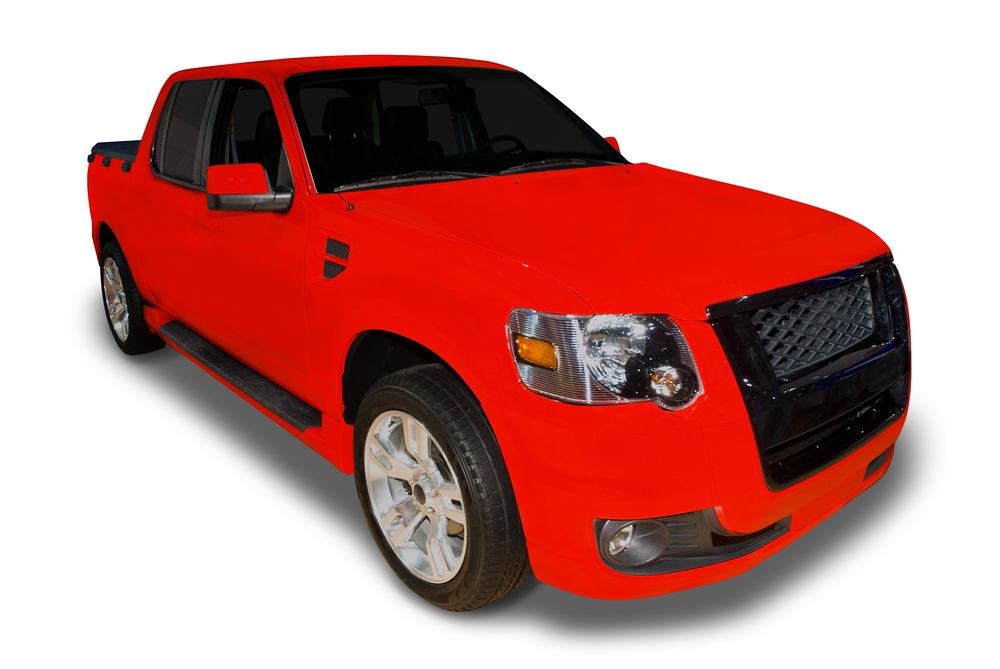
It’s Springtime and as the weather gets warmer, many consumers decide it’s time to buy a pickup truck. You may be considering how a new pickup truck will look in your garage too so let’s talk about the things you need to know before you buy.
At first glance, shopping for a pickup truck might seem a lot like shopping for a car. Pick a color, engine, trim and you’re set, right? But once you consider all the special uses for pickup trucks and the growing number of styles and options, you can quickly get lost in a maze of choices.
Here, then, is how to make truck shopping easier. If you understand the big picture and narrow your options logically, you can more easily find the right truck for you.
1. Know What You Plan on Carrying or Hauling
How you plan to use the truck will guide you to your final choice. Your answers will narrow the field by helping you choose between two- and four-wheel drive. For example, if you are towing a boat or Jet Ski, you might need four-wheel drive to gain traction on slippery boat ramps. If you’re a couple who want to pull a very large mobile home, you might need a “dually” (two rear wheels per side) for towing stability.
2. Choose from Light-Duty, Medium-Duty or Heavy-Duty
Once you know what you’ll tow, find out how much it weighs and be sure to include the weight of the trailer, too. This information will help you choose between a light-duty and heavy-duty truck. Trucks divided into light-duty, medium-duty and heavy-duty categories, identified by numbers such as 1500, 2500 and 3500 or 150, 250 and 350. For example, the Chevrolet Silverado 1500 and the Ford F-150 both have impressive towing capacities, but they are considered light-duty trucks.
Sizing the truck properly is important. If you skimp on power, the truck might have trouble hauling what you need. If you buy more truck than you need, it will cost more at purchase and every time you fill up. Plus, you’ll have a harder time fitting into parking lots or tight driveways.
ProTip: Ask your dealer. Dye Autos has helped many, many customers figure out what the best option is for their unique needs.
3. If you’re planning on trading in your old vehicle, get it ‘trade in ready’.
- Check your trade-in’s value.
- Know where you stand on your loan.
- Clean it up.
- Get your paperwork in order
4. Do the numbers.
When you’re ready to buy a pickup truck, you’ll need to research loan options. There are often attractive programs from your local dealership with better interest rates than you’re able to get at your local bank or credit union.
If you’ve experienced challenges with your credit history, it will bump you out of the top tiers of borrowers. Keep your expectations in check because truck lenders have very specific criteria you must meet.
5. Get Pre-Approved
This fast and easy process lets you choose how much you want to borrow based on the type of truck you’re looking for. Pre-approved truck financing with DYE Autos is just a click away. Visit this link >>>here<<< to get pre-approved.
We’ll put our experience to work for you.
We’re here to make your journey to buy a pickup truck simple and easy. Once you complete the short online application, one of our helpful finance specialists will contact you to discuss available financing options, including the amount you’re qualified to finance.
“If it’s a truck you wanna buy, you’d better call DYE!”
Read MoreHow to Determine How Much You Should Spend on a Used Car

It’s super smart to know your financial health before setting sights on a new car. Many customers we talk to don’t come equipped to determine the best used car for their budget. You can save yourself a lot of money – and a lot of headaches – by doing some simple math before you make your final decision.
If you don’t have a clear picture of how much you can actually afford, it’s easy to bite off more than you can chew. Many people fall in love with a dream car and ignore red flags when it comes to the math.
Even though your (new) used car has monthly payments that seem manageable, it’s always best to know for sure.
How Much Should You Spend on a Used Car?
Buying a used car is one of life’s biggest expenses, and it’s a purchase where you have control over how much you spend.
Financial experts offer wildly different advice on how much you should spend on a car. One school of thought holds that all your automotive expenses (gas, insurance, car payments) should not exceed 20% of your pretax monthly income.
The general rule of thumb is that you shouldn’t spend more than 20% of your monthly income on your car payment.
Knowing your monthly fuel and insurance costs will also help you make an educated decision if you’re considering multiple vehicles. Some may cost more to fuel up; others might have a higher cost to insure.
What you’ll pay
Most buyers with better-than-average credit will pay less-than-average for financing.
Down Payment
A down payment is usually required by lenders, and it’s definitely a good idea. Why?
- It will reduce the amount you’ll need to borrow.
- It improves your chances of loan approval.
- You may get better terms with a down payment.
- It will reduce your monthly payment.
Your credit history will determine the size of the used car loan you can get. If you have less-than-average credit, the high interest rate will make the amount of your loan even lower.
A down payment will offset the interest, taxes, and fees and widen the selection of vehicles you can choose from.
Taxes and Fees
- Calculate your sales tax rate.
- Estimate your License fees.
- Ask your dealer how much their documentation fee is.
Pro Tip: Know your credit score and work on your credit before you start shopping.
Check your credit report as soon as you start thinking about buying a used car or truck, even if it’s months in advance.
If you’ve got less-than-ideal credit, taking this action will help you even more…and save you tons of time and money.
By cleaning up your credit before applying for a loan, you improve your chances of being approved with decent terms. Cleaning up your credit will include paying off past due accounts, disputing credit report errors, and adding positive information to your credit report.
Do your homework before you buy.
By determining how much you should spend on a used car or truck, you’ll be wise to the bigger picture of vehicle expenses BEFORE you head out the door. You’ll end up with a great vehicle that’s best for you, your family AND your wallet.
Call us!
We shared these tips with you because our current customers have told us how grateful they are for this information. We enjoy helping people decide on the right used car or truck.
We can help you too! Call us at (303) 286-1665 or simply fill out our handy contact form >>here<<.
Read More

